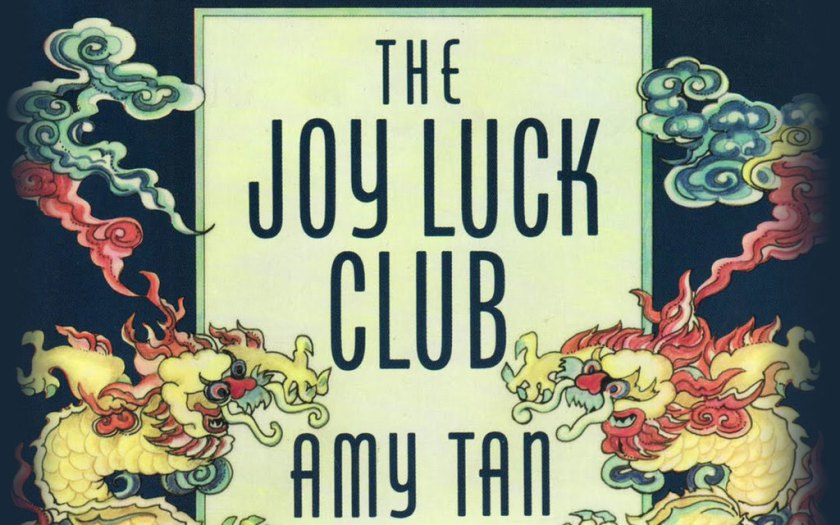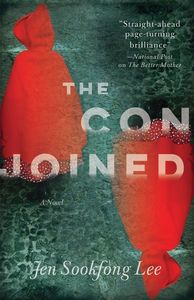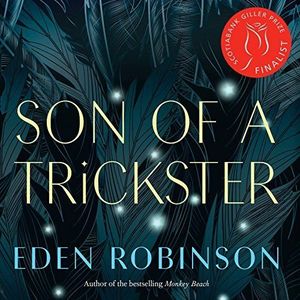On respectable narratives and why diversity on the page matters
By Jen Sookfong Lee
Growing up, I was very particular kind of Chinese girl. I attended Chinese school on Saturdays. I took piano lessons. My report cards were always the best in my class. I played first clarinet in my school band. I went to church on Sundays and volunteered at Bible camp. My parents expected nothing less.
It was only a few years ago that I first read the phrase respectability politics, in an essay about Rihanna (whom I love for many reasons, but that’s a whole other column) and her subversion of what successful, accomplished Black women are supposed to be or act like. She is, after all, no Oprah Winfrey or Michelle Obama, wearing day dresses and kitten heels. Reading that essay reminded me of that afternoon in 2008 when I was at a book fair in New York with my American publisher. My editor, who was someone I liked and enjoyed working with, introduced me to every person we met as, “This is Jen Sookfong Lee. Her novel is like The Joy Luck Club, but Canadian.”
I first read The Joy Luck Club as a teenager and loved it. It remains, 29 years after its initial publication, one of the few novels by an Asian American or Canadian woman that has had huge commercial success. It resonated with grandmothers, mothers and daughters, immigrants, veterans of war, and women who maintain close female friendships; so really, almost everyone. The story, about four women who emigrate from China to San Francisco and their relationships with their American-born daughters and each other, set the tone for how Asian women were expected to write fiction for years afterward. Author Amy Tan wrote about war, racism, intergenerational conflict, and the ways in which trauma is passed from parents to children. I’m not going to lie: my first novel, The End of East, which came out in 2007, explores the same themes.
Now, I should say that The End of East is the novel I wanted and needed to write. Based loosely on my family’s history and in particular our struggle with Canada’s past immigration policies, it is my alpha story. For many writers, a family’s origin story (whether those origins are of place, culture, or trauma) is the one they feel most compelled to tell. Obasan by Joy Kogawa. Fall On Your Knees by Ann-Marie MacDonald. The Break by Katherena Vermette. Sodom Road Exit by Amber Dawn. However, as I was writing it, I was keenly aware of the kind of story that readers expected from Asian women. After all, I worked in a bookstore in the mid-1990s and I saw firsthand what publishers were selling and what people were buying.
There is a kind of comfort with novels like The Joy Luck Club and The End of East. The oppression almost always comes in the form of systemic oppression, of a government or war that hurts or marginalizes people, and not at the hands of individuals we can recognize. They are set in the past and contemporary readers can shake their heads at how bad things used to be, without reflecting too hard on how bad things still are right now. And, they are centered around family and the home and food, themes that are easy for people to accept from Asian women. This isn’t to say that these novels don’t also ask hard questions about diversity or feminism, because they can and do, but it is always polite, directed at revolution or corruption, never at individuals. They are respectable. They are what good Chinese girls who practice the piano for 45 minutes every day after school grow up to write, because we don’t want to cause discomfort.
Your CanLit News
Subscribe to Open Book’s newsletter to get local book events, literary content, writing tips, and more in your inbox
My most recent novel, The Conjoined, which is about foster girls from Vancouver’s Chinatown and who are abused and eventually killed, is far less respectable. There are scenes of disturbing violence, descriptions of how adults can rationalize the victimization of children, and one scene of my protagonist having sex in a car with a man she really should stay away from. The feedback, both during the submission process and after the novel was published, often pointed out that it was too graphic and upsetting, and that my characters were too unlikeable. In private, I shouted to the ceiling, “Has anyone told Irvine Welsh or Jo Nesbo that their work was too violent or unlikeable?” In public, I politely refused to change what I thought were integral scenes in a novel that was designed to take apart the Asian model minority stereotype, that was trying to shove respectability politics out the window. I had been a Good Chinese Girl for most of my life. In my late 30s and early 40s, it seemed, I no longer fit that role, if I ever did.
Respectability, of course, doesn’t just affect Asian female authors. It plays out in the narratives many people from different groups have been allowed to write, in how Rihanna is supposed to manage her music and her public persona. Not all queer authors are going to write a coming-out story. Not all Indigenous authors are going to write about residential schools. In the same way that not all white authors are going to write about alcoholic family dysfunction in a small town where everyone knows everyone else’s secrets. Settling into what people are comfortable acquiring or reading is where stagnation lies, and that isn’t good for anyone.
There is no true diversity until we embrace diversity of narrative, until any author from any group can write speculative fiction or lyric love poems or comics or music criticism. For me, that means writing a literary crime novel where women played all the principal roles or writing a book of film criticism in a genre dominated by white men. For Amy Tan, that means singing lead in a rock band while wearing a dominatrix outfit (true story, she does this).
Respectability was never my intention, but it was the only space that publishing afforded writers like me for a very long time. Now, as I see that Brown Girl in the Ring by Nalo Hopkinson has been adapted into the dystopian feature film, Brown Girl Begins, and as Eden Robinson’s Son of a Trickster, which either won or was nominated for every major book prize, is being made into a television series, that space is opening up. Success no longer has to be built on the respectable terms that CanLit used to demand. The narratives can be surprising, funny, raw, and epic. They can be the literary equivalent of a 66-year-old Amy Tan in a leather miniskirt and fishnet stockings, shouting into a mic in a dive bar. And honestly? I have never loved her more.
The views expressed by Open Book columnists are those held by the authors and do not necessarily reflect the views of Open Book.
Jen Sookfong Lee was born and raised in Vancouver’s East Side, and she now lives with her son in North Burnaby. Her books include The Conjoined, nominated for International Dublin Literary Award and a finalist for the Ethel Wilson Fiction Prize, The Better Mother, a finalist for the City of Vancouver Book Award, The End of East, The Shadow List, and Finding Home. Jen acquires and edits for ECW Press and co-hosts the literary podcast, Can’t Lit.





